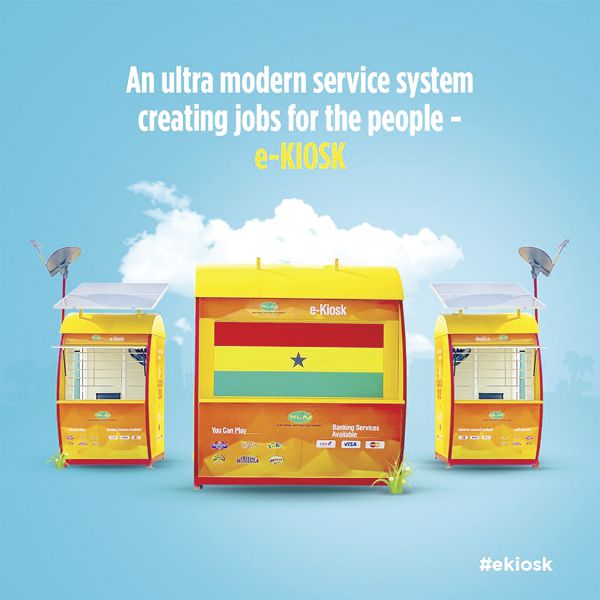
NLA e-kiosk model to usher Ghana into a full Cash-lite Society
The National Lottery Authority (NLA) has announced that it is set to roll out a full cash-lite policy in the country to fuel efforts by the government to digitise and modernise the economy.
The policy, according to the authority, was aimed at reducing (not eliminating) the amount of physical cash that was circulating in the economy and encouraging more electronic-based transactions.
In a statement dated June 15, 2019 and signed by its Public Relations Unit, the NLA said it was collaborating with the Ghana Revenue Authority (GRA), the banks, telecommunications companies, the Ghana Water Company Limited, the Power Distribution Services (formerly ECG) and other agencies to ensure that the policy was clean and successful.
Benefits
It said worldwide the cash-lite system ensured safety and security of cash flow, uninterrupted rotation of cash from one wallet to another, convenience, reliability and reachability of cash, easy tracking and monitoring of cash flow, the fight against money laundering, among many other benefits.
“The NLA’S cash-lite policy will ensure interoperability among bank accounts, mobile money wallets, point of sale terminals (POS), Value Added Tax (VAT) and other electronic payment platforms.
“One of the practical ways to improve digitalisation and digitisation of the Ghanaian economy will be through the solar-powered E-kiosk Business Model,” it said.
According to the statement, although Ghana had the baseline infrastructure, such as Real Time Gross Settlement (RTGS), automated teller machines (ATMs) and POS switches, coupled with mobile money interoperability for the purpose of achieving a cash-lite economy, it was still very much a cash-dependent society.
“A cash-lite economy has been a long-awaited dream for Ghana and the E-kiosk platform will lead in ensuring the realisation of that dream,” it said.
Efforts
It recognised the efforts of the Bank of Ghana (BoG) and the Ghana Interbank Payment Settlement System (GhIPPS) for pushing the cause of a cashless economy and said more needed to be done to improve the system.
“Although under this umbrella the country has chalked up quite some success in electronic payments, it is still not adequate enough to propel the country into a cash-lite society.
Physical cash transaction is still very common in Ghana,” it postulated.
The NLA said it had about 10,000 sale centres across the country and that it expected to hit 40,000 by the introduction of its solar-powered E-kiosk system.
“This approach of business model will provide easy accessibility, availability and reachability for customers.
Indeed, the solar-powered E-kiosks will help usher Ghana into a full cash-lite society and, in addition, create over 100,000 jobs for Ghanaians, especially the youth,” it stated.
